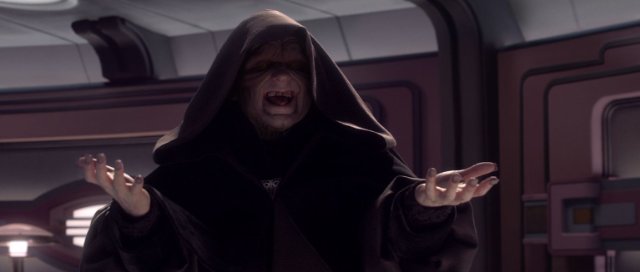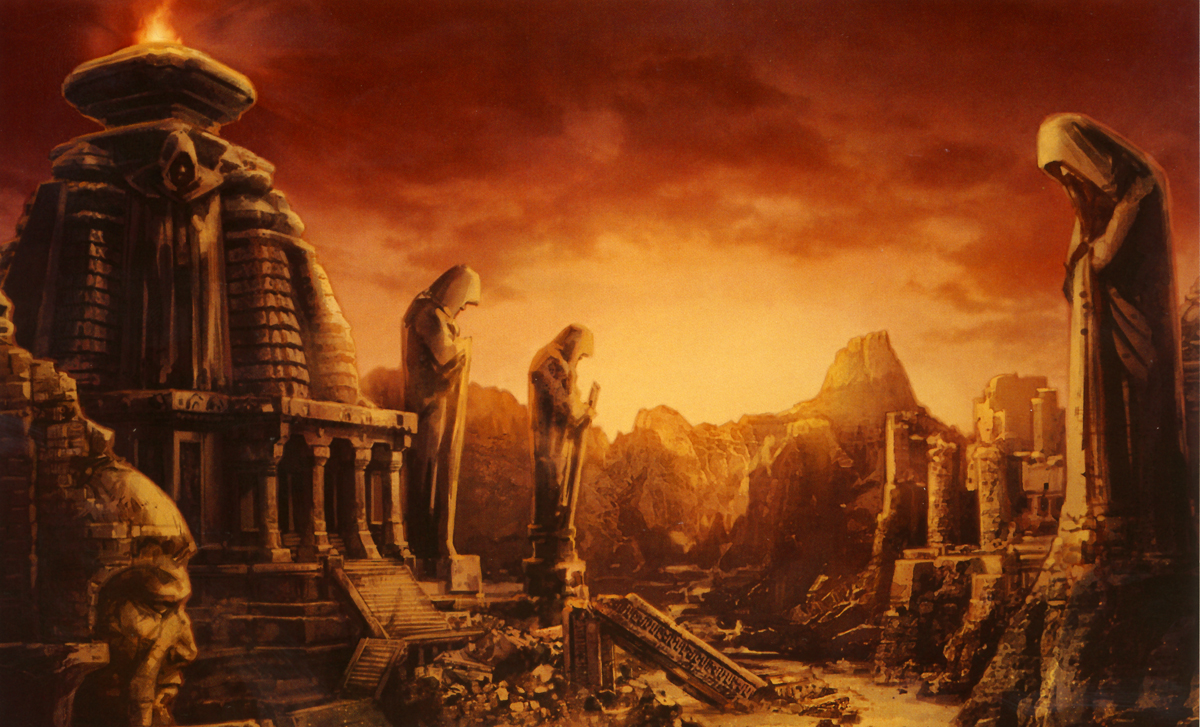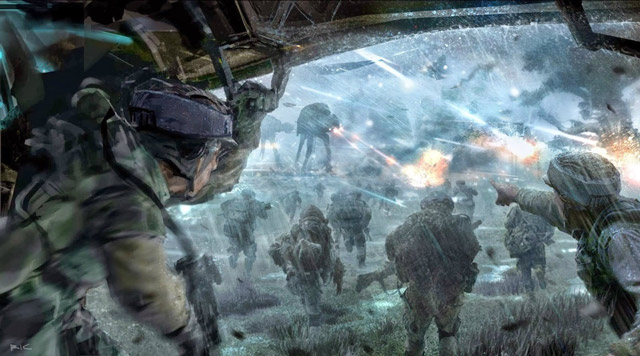
With the recent terrorist attacks, I’ve been noticing an increased amount of online belligerence regarding matters like the Islamic State. The line tends to be that ‘we’ should do more, but rarely goes further to say ‘what’ that is and what ‘our’ ownership of it and the consequences would be. At the same time the recent release Lords of the Sith attempted to ask what committing to a rebellion actually means and what guerrilla warfare entails. Some found the notion of a Rebel cell ambushing Imperial medical personnel disturbing, which I’d be inclined to say was the point. But they’re medics, you object! Yes, but they are also medics who patch up the stormtroopers and play a role in keeping the Empire going. Does that mean they deserve death? Deserve likely has little to do with it!
Ever since the first Gulf War, politicians and generals have tried to sell the idea that war can be somehow rendered more civil, more clean. Smart bombs will only kill the bad guys, their shrapnel won’t hurt anybody who doesn’t deserve it. It’s a nice picture, but an accurate one? Not really. The problem with accounts of war, as I’ve found when reading World War II accounts, is what they depict is unimaginably vicious. Not even the best and most skilled film-making will bridge that indefinable gap between fiction and reality. It can be argued it should not try either.
In the end though, I am a civilian, I have not, nor would I ever have the skills to, go to war. At least not without being a liability to everyone else! In this strange world of more restrained media reportage of real wars, while entertainment creators strive to render war in their stories more accurately, I wondered what someone who has been to war would make of all this. I asked a poster on one of the message boards I’m active on if he might, as a military vet, be interested in doing a brief Q&A. He was, on condition of remaining anonymous. My thanks to him for his time and answers. Read More
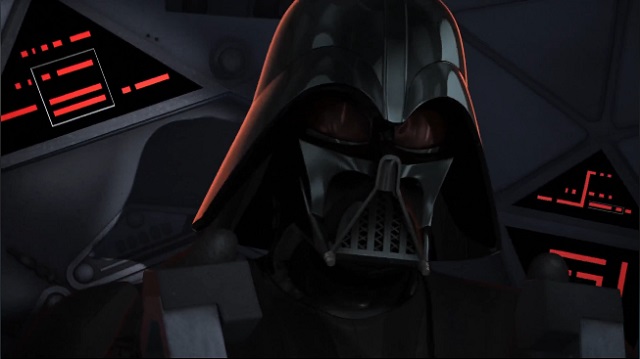
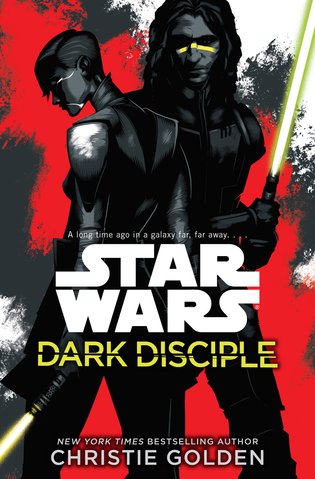 The Clone Wars dominated the landscape of Star Wars media for a good ten years or so, from the release of Attack of the Clones onward. The once-mysterious conflict referred to by Obi-Wan was fleshed out to an almost absurd extent. Once the Disney era of Star Wars publishing began, though, that focus shifted back toward the original trilogy era, leaving fans used to the focus on the prequels feeling left out. Then Dark Disciple was announced, and the combination of author and subject matter made most fans throw up their hands in either jubilation or utter despair. Christie Golden’s only contributions to Star Wars before now were in the Fate of the Jedi series, which has a rather mixed reputation among many readers. Not having read them myself, I sought to go into this book with as open a mind toward Golden as possible, since I try not to assign blame to authors for elements in books that are, often, works by committee to some degree.
The Clone Wars dominated the landscape of Star Wars media for a good ten years or so, from the release of Attack of the Clones onward. The once-mysterious conflict referred to by Obi-Wan was fleshed out to an almost absurd extent. Once the Disney era of Star Wars publishing began, though, that focus shifted back toward the original trilogy era, leaving fans used to the focus on the prequels feeling left out. Then Dark Disciple was announced, and the combination of author and subject matter made most fans throw up their hands in either jubilation or utter despair. Christie Golden’s only contributions to Star Wars before now were in the Fate of the Jedi series, which has a rather mixed reputation among many readers. Not having read them myself, I sought to go into this book with as open a mind toward Golden as possible, since I try not to assign blame to authors for elements in books that are, often, works by committee to some degree.